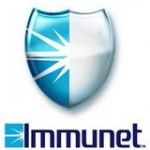Billboards can track your location, and privacy advocates hate it
Clear Channel Outdoor launches a new geolocation tracking service as a way to deliver targeted ads
Credit: Clear Channel Outdoor
A geolocation-tracking feature on billboards owned by Clear Channel Outdoor gives the company new ways to target advertising and measure its effectiveness. The service has caught the eye of privacy advocates, who worry that the so-called Radar tracker will be able to collect massive amounts of information from smartphones in cars driving past.
Radar will collect mobile data from three Clear Channel partners, including AT&T. “When you pull all of that together, you have lots of granular information” about a person, said Jeffrey Chester, executive director of digital privacy group the Center for Digital Democracy. “There are serious privacy issues here.”
But Clear Channel Outdoor receives aggregated and anonymous data from its partners, not personal information, said Jason King, vice president of corporate communications at the company. The company launched the service in 11 markets earlier this week.
“The billboards do not have eyes, nor do they have any technology or cameras to see you,” he said by email. “There is absolutely no exchange of consumer personal information among Clear Channel Outdoor, its advertisers or the third party data providers. The consumer data lives with the data providers.”
But the company could use aggregated data to build detailed profiles of individual smartphone users, Chester said.
Using the data from its partners, the billboard company can build a “real complex picture of an individual,” Chester said. The service is one part of “an increasingly personal commercial surveillance system that tracks you on the street.”
Clear Channel Outdoor, a subsidiary of media giant iHeartRadio, owns billboards in more than 35 U.S. markets, including New York City, Philadelphia, Los Angeles, San Francisco and Washington, D.C.
The company’s launch of Radar caught the attention of U.S. Senator Al Franken, a Minnesota Democrat who’s raised questions about the privacy implications of geolocation tracking.
Franken is concerned about “the extent to which Clear Channel may be collecting Americans’ personal information … and sharing that information without people’s knowledge or consent,” he wrote in a letter to the company. “I believe Americans have a fundamental right to privacy.”
In his letter, Franken asked the company to answer several questions, including whether the company has a privacy policy for the Radar service and when the collected data is anonymized.
Franken wants to ensure that corporations don’t abuse the “modern reality” of inescapable out-of-home advertising, he added.
Privacy concerns are unfounded, King said. “Only the data providers, who have direct relationships with their own consumers, have access to a customer’s personal information,” he added.
Before providing the data to Clear Channel, the data providers categorize their consumers into anonymous groups such as soccer moms or NBA fans, and advertisers want to target these aggregated groups of anonymous consumers, King said.
With at least one of the company’s partners, smartphone owners opt into location mapping, and in other cases, customers have the ability to opt out, King said.
Clear Channel has no ability to determine personal information such as the age and gender of people who see its billboards, King added. “The data providers can inform us by sharing, for example, that I-95 in Florida has a high percentage of young families traveling to Disney World,” he said. “And some of these travel paths may run contrary to where an advertiser might think these groups congregate or pass.”
source: pcworld









